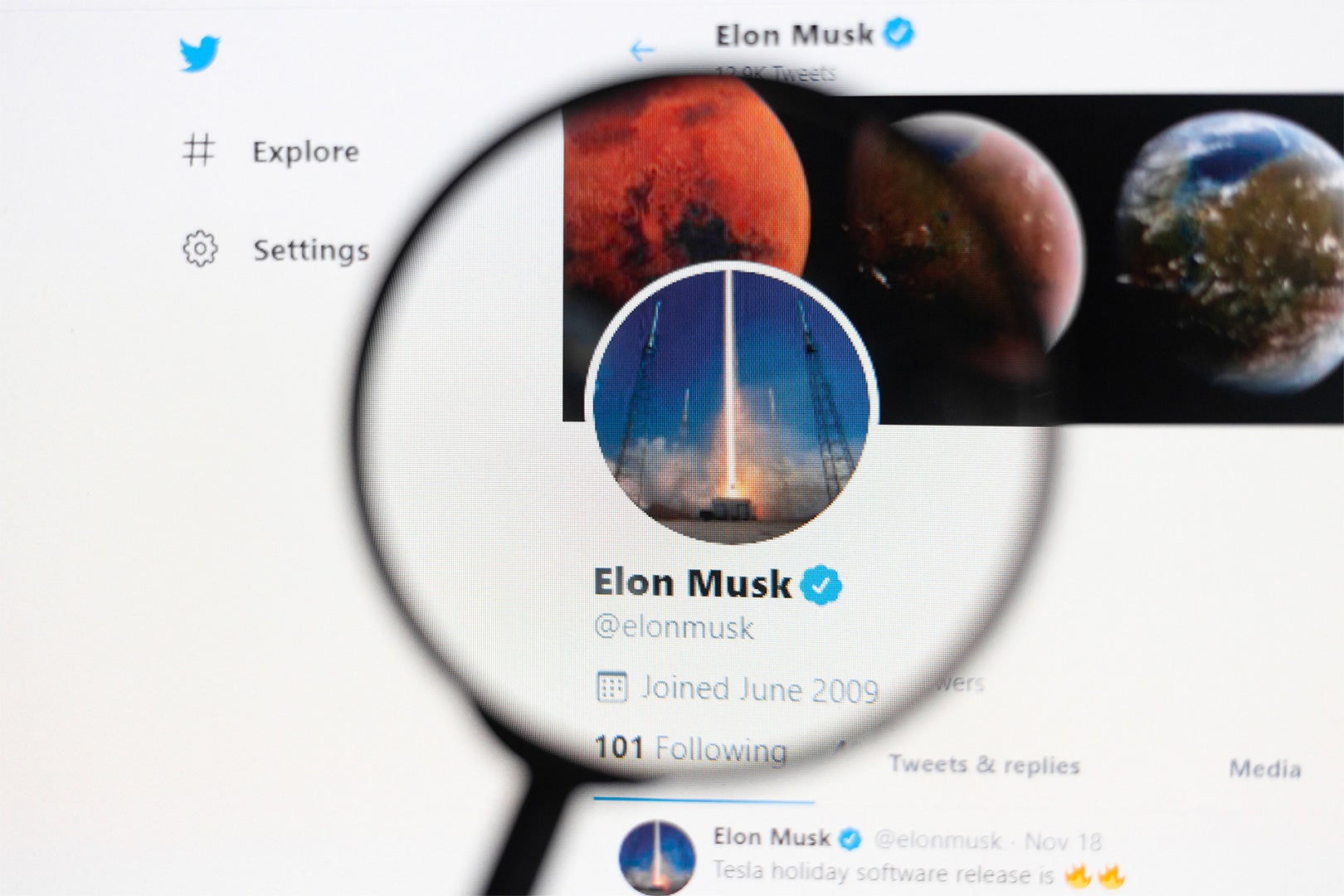
Elon Musk’s offer to proceed with a $44 billion acquisition of Twitter has the two sides working to close the deal ahead of the recently extended court deadline of October 28. Meanwhile, a pair of professors at the University of Maryland’s Robert H. Smith School of Business are weighing in: financial market expert and economist David Kass and David A. Kirsch, who is researching pro-Tesla bots on Twitter.
From Kass, a clinical professor of finance who has served as an economist in senior positions with the Federal Trade Commission, General Accounting Office, Department of Defense, and the Bureau of Economic Analysis: “At this moment it appears that the mercurial Elon Musk will reluctantly acquire Twitter for $54.20 per share prior to the recently extended trial date of October 28th as he originally agreed. However, if Elon Musk really does go through with this acquisition, Twitter will face an annual interest burden of nearly $1.2 billion on its debt. Roughly half of the $13 billion debt Musk is loading on Twitter is floating rate, meaning interest costs will increase as the Federal Reserve continues to raise rates. Twitter’s current interest expense is less than $100 million per year and it may not be free-cash-flow positive until 2025.”
If this acquisition is consummated, “the shares will then cease to trade publicly but could be reissued as an IPO in the future,” Kass says. “I would expect Musk to use his innate creativity and genius to turn the company around and greatly expand its services in the years ahead. However, to what extent will Twitter’s current safety rules be changed by Musk? For example, users of this platform – according to the current rules – may not threaten violence against an individual or a group of people, may not threaten or promote terrorism or violent extremism, and may not promote violence against, threaten, or harass other people on the basis of race, religious affiliation, or gender.”
‘X, The Everything App’
Musk last week tweeted, “buying Twitter is an accelerant to creating X, the everything app.” This stirred speculation including, according to the Associated Press, Musk wanting to recreate a version of China’s WeChat app that can do video chats, messaging, streaming, scan barcodes and make payments.
However, Kirsch, associate professor of strategy and entrepreneurship, addressed the speculation in the context of such previous Musk predictions as colonies on Mars and autonomous fleets of robotaxis: “Musk has not really faced much direct competition. This is not Tesla where all he had to do was beat an incumbent like General Motors that didn’t really want to produce EVs to begin with.” Many leading tech firms are capable of producing an ‘everything app’: “You are dealing here with all of these other companies (that) also have very sophisticated AI programs, very sophisticated PhD programmers...everyone is trying to crack this nut,” Kirsch told the AP.
‘Fanbots’
Kirsch further addresses the irony of Musk’s revived acquisition offer despite previously backing out based on the platform’s purported bot traffic. “Bottom line: it's always a little hard to take Musk seriously, but now we have to revisit all the threats that his ownership of Twitter posed to our information ecosystem.” These concerns had been tabled when Musk changed course the first time and said that he didn't want to buy Twitter.
In a working paper with co-author Mohsen Chowdhury, Kirsch identifies a set of non-human accounts called fanbots and explores the possibility that these accounts may have influenced the trajectory of Twitter discourse about Tesla, the principal source of Musk’s wealth.
Regarding Twitter, Kirsch has previously noted that the company benefits to some degree from the existence of bots, and it’s not really in their interest to reduce the bot-inflated number of monthly active users. “If they really wanted to get rid of every bot, I think they could do that quite easily, but it would open them up to even more accusations of censorship because there would surely be some autonomous-seeming human users that their bot-detection algorithm would identify as bots.”
Media Contact
Greg Muraski
Media Relations Manager
301-405-5283
301-892-0973 Mobile
gmuraski@umd.edu
Get Smith Brain Trust Delivered To Your Inbox Every Week
Business moves fast in the 21st century. Stay one step ahead with bite-sized business insights from the Smith School's world-class faculty.